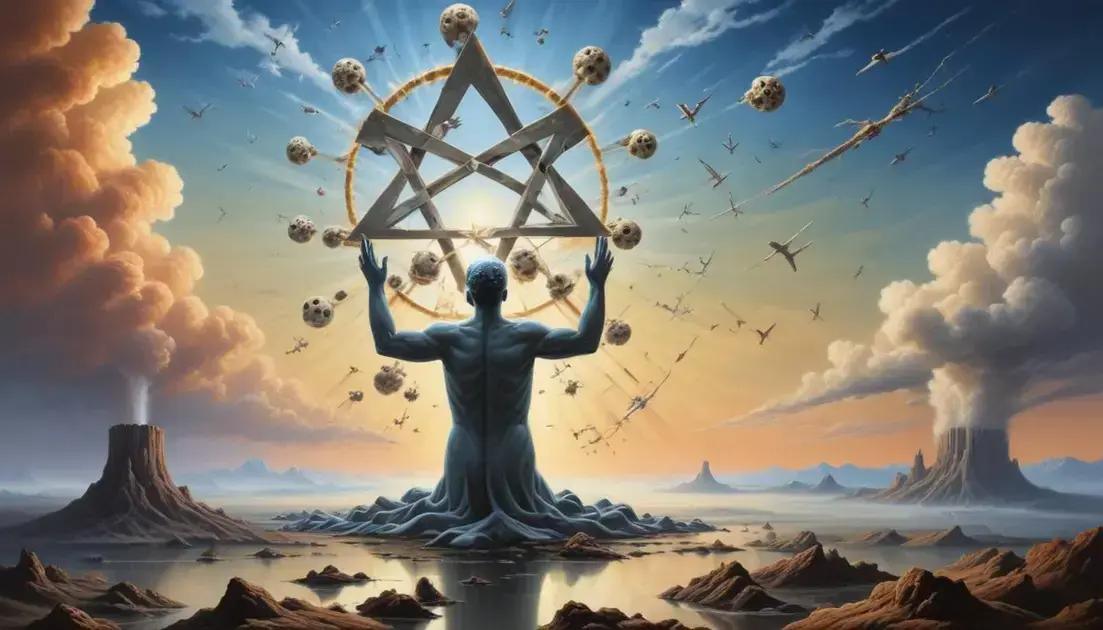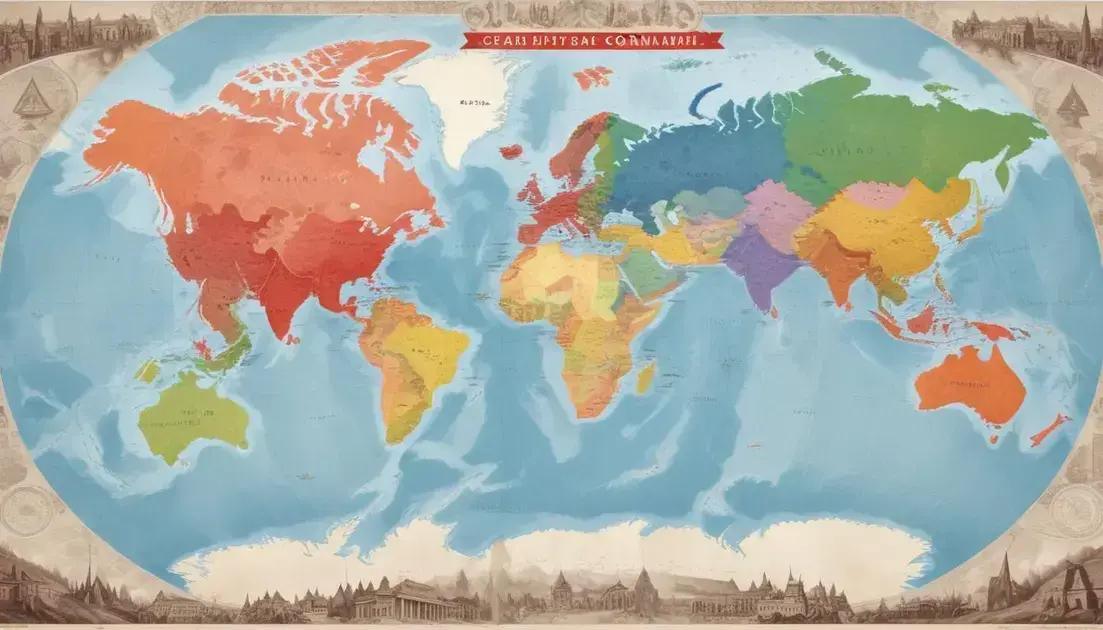
Existentialism and Freedom in the Nuclear Age
Philosophical anxiety in modern society highlights the struggles individuals face regarding freedom and choice. Influenced by existentialist thinkers like Sartre and Camus, this anxiety reflects our quest for meaning in an uncertain world. While it may feel overwhelming, acknowledging that anxiety can lead to self-discovery and deeper connections with others is essential. Embracing our uncertainty and supporting one another fosters resilience and a greater understanding of our shared experiences.
Have you ever thought about how Existentialism shapes our understanding of freedom, especially in today’s nuclear age? This article dives deep into these ideas, questioning how they resonate with us now.
Understanding Existential Philosophy
Understanding Existential Philosophy is about exploring the big questions of life, freedom, and choice. This philosophy says that we create our own meaning. It emphasizes personal responsibility and the importance of making our own decisions. Existentialists like Sartre and Camus ask us to look at how we find purpose in an uncertain world.
One key idea is freedom. Existentialism teaches us that we are free to choose our paths. But with freedom comes responsibility. We must own our choices. This can feel overwhelming, but it also opens up endless possibilities. Imagine having the power to shape your own life!
Anxiety is another common theme. Many people feel anxious when faced with these choices. This sense of anxiety shows that we are aware of our freedom. It’s a normal part of being human. Rather than running from it, existentialism encourages us to embrace our feelings.
Moreover, the philosophy looks at the experience of being alive. Existentialists often emphasize being true to ourselves. They argue that living authentically allows us to connect with others and find meaning.
In the end, understanding existential philosophy helps us navigate life’s complexities. It invites us to reflect on our existence and to ask important questions. Are we living life to the fullest? Are we making choices that reflect who we are?
Freedom in the Nuclear Context
Freedom in the Nuclear Context is a complex topic that raises many questions. In our modern world, the idea of freedom often clashes with the realities of nuclear power. We must think about how nuclear weapons affect our sense of safety and liberty. Many people wonder: does having nuclear weapons really protect our freedom?
One important aspect is security. Some argue that nuclear weapons are necessary for protecting nations. This belief suggests that they maintain peace through deterrence. However, the threat of nuclear war can also limit freedom. Living under the shadow of possible destruction creates constant anxiety.
On the other hand, we also think about human rights and freedom of choice. The nuclear context can sometimes lead to restrictions. Governments may impose laws limiting freedoms in the name of national security. For example, people may face censorship or surveillance to prevent threats.
This raises critical questions about agency. Are our freedoms genuine when they are conditional on security measures? Many philosophers argue that real freedom requires a balance between safety and personal liberties.
Furthermore, existentialist thinkers like Sartre and Camus suggest that true freedom involves making choices, even in difficult situations. In a nuclear world, we need to reflect on how we choose to live. This includes acknowledging the weight of our decisions and their impact on society.
The Works of Sartre and Camus
The Works of Sartre and Camus are key to understanding existentialism. These two philosophers explored deep questions about life, freedom, and choice. They both faced the challenges of living in a complex world.
Jean-Paul Sartre’s writings focus on the idea that we are condemned to be free. This means that we are responsible for our choices. His famous work, Existentialism is a Humanism, argues that we create our own essence through actions.
On the other hand, Albert Camus offers a different view. In works like The Myth of Sisyphus, he discusses the absurdity of life. For Camus, life can seem meaningless, but we can find joy in our struggles. He emphasizes living with passion, even in a chaotic world.
Both philosophers address anxiety. They show how uncertainty can lead to feelings of fear. Yet, they encourage us to embrace these feelings. By understanding our anxiety, we can learn to live authentically.
Sartre and Camus also delve into human relationships. They illustrate how interactions shape our identities. Sartre’s play, No Exit, makes this clear. It reflects how our choices affect not just ourselves but others too.
By studying their works, we can gain insights into our own lives. Sartre and Camus challenge us to think critically about freedom and existence. Their ideas remain relevant today, especially in our fast-changing world.
Philosophical Anxiety and Modern Society
Philosophical Anxiety and Modern Society reflect the struggles many people face today. As we navigate our lives, anxiety often creeps in. It can stem from the uncertainty of our choices and the pressures of daily life. Many feel overwhelmed by expectations, both from society and themselves.
This anxiety is central to existentialist thought. Thinkers like Sartre and Camus explore how we confront life’s big questions. They highlight that anxiety can lead us to deeper self-reflection. It’s not just a feeling; it’s an invitation to examine our choices.
Modern society adds to this complexity. With constant information and social media, we face new pressures. The need to portray a perfect life can increase feelings of inadequacy. People often wonder if they’re doing enough or living authentically.
Moreover, the fast-paced world we live in can feel chaotic. This chaos often breeds anxiety. Questions about job security, relationships, and future plans make it hard to find peace. Yet, this anxiety may also inspire action. Instead of being paralyzed by fear, many seek change and growth.
Philosophical anxiety can drive us to seek meaning amidst uncertainty. For instance, individuals may explore new hobbies, pursue therapy, or engage in spiritual practices. These efforts aim to bring clarity and purpose to life.
Understanding philosophical anxiety helps us connect with others. It reminds us that we’re not alone in our struggles. By acknowledging these feelings, we can create conversations and communities that foster support.
Conclusion
In conclusion, understanding philosophical anxiety in modern society is crucial. Anxiety can often feel overwhelming, but it also opens doors to self-discovery and growth. When we acknowledge our feelings, we can start meaningful conversations and build supportive communities.
Philosophers like Sartre and Camus remind us that it’s okay to feel uncertain. Their teachings encourage us to reflect on our lives and embrace our freedom to choose. By navigating our anxiety, we can find purpose and connection in a busy world.
Ultimately, we all share the journey of seeking meaning. Let’s support one another and create spaces where we can explore our thoughts and feelings. After all, facing anxiety together can strengthen our bonds and make life more fulfilling.


